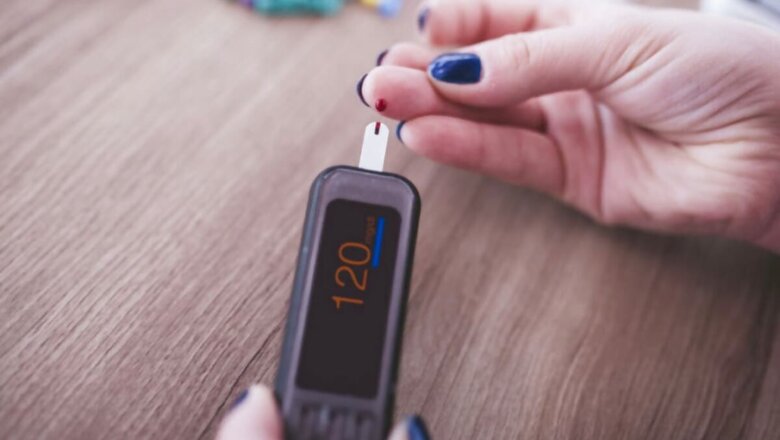
views
World Diabetes Day is observed every year on 14 November to raise awareness about this chronic disease, but what many don’t realise is that there is an intricate connection between diabetes and hypothyroidism. The thyroid gland exists in the front part of our neck; it releases the thyroid hormone and helps our body to regulate and use energy. It controls several functions in our body including how our heart beats and digestive system works.
Hypothyroid and diabetes
Hypothyroidism is a hormonal disorder that affects our thyroid gland in which not enough thyroid hormone is produced. Without the required amount of thyroid hormone, the natural functions of our body become slower than usual. In the early stages, hypothyroidism may not cause any noticeable symptoms but untreated hypothyroidism can cause certain health problems in the long run that include obesity, joint pain, infertility and heart disease.
Both thyroid and diabetes are endocrine or hormonal problems. When someone is diagnosed with thyroid disease, it becomes more difficult to control the blood sugar level. Hypothyroid disease is also known as underactive thyroid and women suffer from hypothyroidism more frequently than men. Surprisingly almost 30% of women who have type 1 diabetes also have thyroid disease. If someone has any kind of autoimmune disease, the risk for developing other autoimmune diseases becomes higher. Type 1 diabetes is an autoimmune disease and, as such, it enhances the risk of another autoimmune disease, which is the cause of thyroid disease in some people.
As the thyroid hormone controls our body’s metabolism rate, when it comes to lower thyroid production, the metabolism of our body also becomes slower. Due to slower metabolism rate, the diabetes medicine can’t pass through our body cells quickly and it stays active for a longer period of time and eventually results in low blood glucose levels.
Here are some quick tips for women to manage diabetes along with the thyroid disease:
- You should focus on including vegetables, fruits, whole grains, lean protein and healthy fats in their meals. Weight gain is a common symptom of hypothyroidism, so one should avoid high carbohydrate intake and foods that have a high glycemic index such as potatoes, sweet potatoes, yams, mango, custard apple, banana etc. Low-fat dairy products are preferable and one should avoid packaged and ready-to-eat foods
- To maintain a stable energy level, you should opt to have small meals throughout the day instead of 3 large ones.
- Doing physical exercises regularly is necessary and you should include cardio exercises, yoga and strengthening exercises into your daily routine.
- Stress can worsen both diabetes and hypothyroidism. Take the help of relaxing activities to deal with stress regularly or as and when required.
- Maintaining a good sleep cycle is important to manage diabetes and hypothyroidism. Regularly getting 7-8 hours of sleep is a must.
- Often it becomes necessary to reduce the diabetes medicine dose if one has hypothyroidism. Diabetes control gets negatively impacted in case of untreated or inadequately treated thyroid. But you should avoid changing the time/dose of any medication without consulting your doctor.
- Frequently monitor your blood sugar levels.
- Drinking enough water (at least 11-12 glasses a day) is very important.
One can manage both hypothyroidism and diabetes by developing healthy lifestyle choices and taking medical guidance whenever required.
This article was written by Dr Nupur Gupta, Director, Department of Obstetrics and Gynecology, Fortis Hospital, Gurugram.
For more information, read our article on Diabetes.
Health articles on News18 are written by myUpchar.com, India’s first and biggest resource for verified medical information. At myUpchar, researchers and journalists work with doctors to bring you information on all things health.
Read all the Latest News, Breaking News and Coronavirus News here



















Comments
0 comment